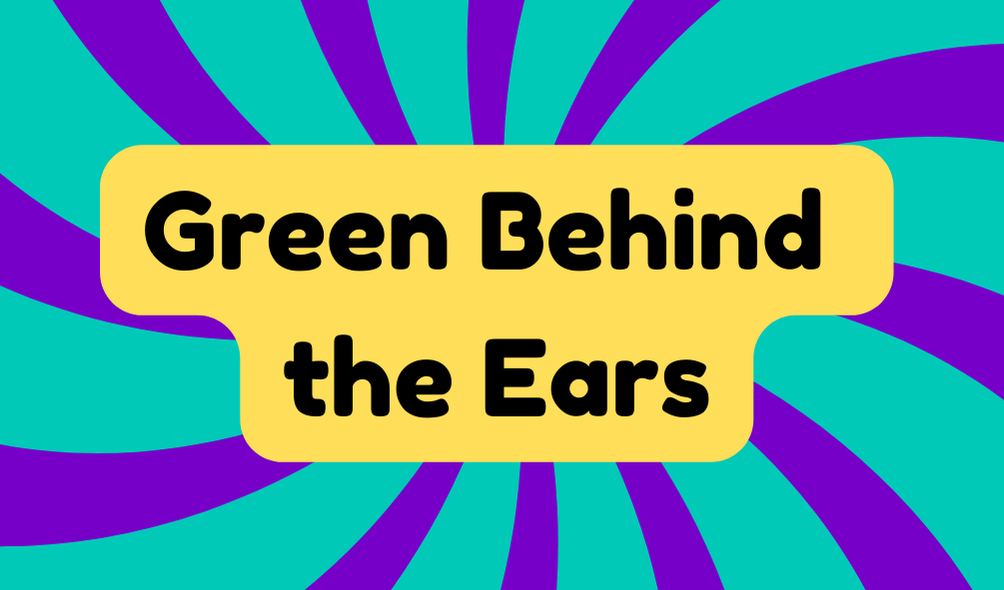When you hear someone say "green behind the ears," it means they're inexperienced or naïve. This phrase comes from farming, where young animals show a lack of experience. In today's world, it's often used in workplaces to describe new employees. Inexperience can lead to mistakes, but it's also an opportunity for growth. Instead of being harsh on those starting out, consider offering guidance. Learning from these experiences can be valuable, and there's even more to discover about this topic.
Synonyms
When you hear the phrase "green behind the ears," it might puzzle you, but it really just means inexperienced or naïve. Understanding this can help you recognize similar terms that capture youthful inexperience. Using novice terminology isn't just a matter of terminology; it shapes how people perceive skill levels. Here are some synonyms to enrich your vocabulary:
- Wet behind the ears
- Newbie
- Rookie
Exploring these alternatives provides a sharper perspective on experiences. It's important to critically analyze how we use language in relation to skill and maturity. Each term reveals layers of understanding about one's journey and potential growth. So, the next time you describe someone as green behind the ears, think about the depth these synonyms can add to your conversation.
Example of Sentences
Understanding how to use the phrase "green behind the ears" in context can really clarify its meaning. This expression conveys a sense of inexperience or naivety, particularly in a specific area. Here are some example sentences to illustrate practical applications:
- "Although he tried to impress the board, his lack of knowledge made it clear he was still green behind the ears."
- "Starting a business can be tough; don't worry if you feel green behind the ears at first."
- "She was talented but green behind the ears, needing guidance to navigate the industry."
Using these examples, you can better grasp how this phrase fits into everyday conversation. By recognizing these scenarios, you'll communicate with more depth and nuance in your discussions.
Origin
The phrase "green behind the ears" originates from the world of farming, where young animals, especially calves, often display a distinctive lack of experience. Historically, this expression highlights the cultural significance of agriculture in shaping language. It conveys a vivid image of naïveté and inexperience, making it relatable for generations. You might wonder why this particular image stuck around—it's simple; society often reflects on youth and inexperience through tangible examples like farming. As we innovate and rethink the way we learn today, it's crucial to recognize these roots. The phrase captures the essence of learning through experience, reminding us that everyone starts somewhere. In our fast-paced world, don't let the fear of being "green" deter you from growing.
Collocations
Collocations related to "green behind the ears" reflect its meaning and usage in everyday language. These collocational phrases help capture the essence of being inexperienced or naive. Exploring these phrases enhances your understanding of semantic relationships:
- "new to the game"
- "fresh in the field"
- "novice at work"
How to Use in Everyday Language
When you find yourself in a situation with someone who's "green behind the ears," it's crucial to recognize the nuances of this expression. Use it in everyday contexts, like when discussing a new coworker or a novice in a hobby. In casual conversation, you might say, "Don't be too hard on her; she's just green behind the ears." This helps frame your critique without sounding overly harsh. However, be cautious—overusing the phrase can come off as condescending. It's important to maintain respect, especially in professional settings. Instead of labeling someone as inexperienced, consider more supportive language. This approach encourages growth and keeps dialogue constructive, showcasing your awareness of both language and relationships in innovative ways.
Why Is It Still Relevant Today?
While many phrases fall out of favor as language evolves, "green behind the ears" remains relevant today for several reasons. First, you've got current applications in various fields, particularly in workplaces highlighting the need for mentorship. When someone's inexperienced, it's a clear sign they might still need guidance. This term also carries significant cultural weight, reminding us that everyone starts somewhere. Using it sparingly can add a touch of humor or humility in conversations about learning curves. In an era focused on innovation, recognizing when someone's "green" can foster a supportive environment. However, questioning its implications today is vital; are we simply reinforcing stereotypes of incompetence, or are we promoting constructive growth? Embracing this phrase thoughtfully matters.







